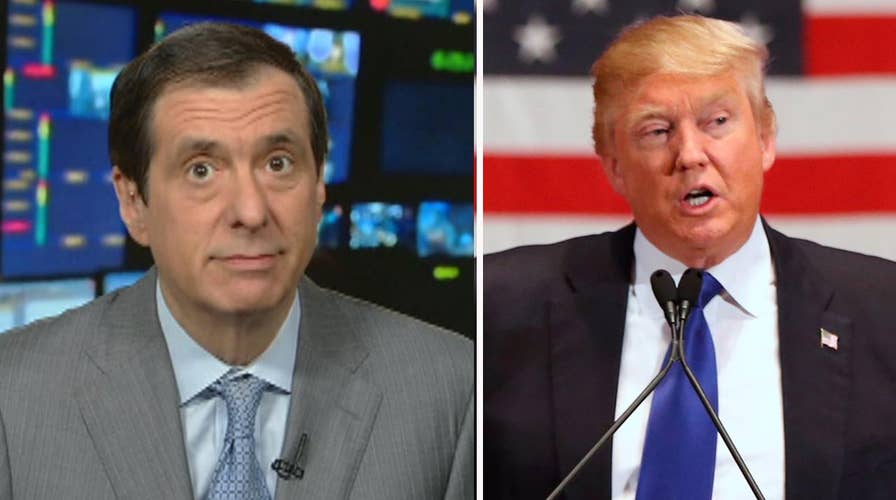Kurtz: Calling the GOP a ‘cult’ is creepily condescending
'MediaBuzz' host Howard Kurtz responds to the recent mainstream media trend of referring to the GOP and President Trump's followers as a
The media are going cult-crazy.
That is, a number of news outlets and commentators are having a grand time describing the Republican Party as a Trumpian "cult."
Some are using comments by retiring GOP senator Bob Corker, who invoked the C-word, as a peg. But others had already been writing about the supposed Trump cult.
Think for a moment about that word choice. It suggests something spooky and delusional. Anyone who would join a cult—meaning most Republican lawmakers and voters, in this context—must be rather mindless. Susceptible to strange practices and beliefs. Outside the mainstream.
The dictionary defines cult as "a particular system of religious worship, especially with reference to its rites and ceremonies." Or "great veneration of a person, ideal or thing."
It's an insidious bit of branding that reveals a condescending media mindset toward the president and his followers.
Since many pundits have never quite grasped Trump's appeal and don't like his confrontational style or many of his policies, his followers must be, well, kinda pathetic.
Now I don't have any problem with much of the underlying analysis; in fact, I made some of the same points yesterday. The GOP is now Donald Trump's party. Republican lawmakers or candidates who cross him are putting their careers at risk, as Mark Sanford found out this week in losing his congressional primary in South Carolina.
It's equally true that many GOP members of Congress, as well as voters, have either been persuaded to back Trump policies that contradict what they have supported in the past or are doing so out of political cowardice. Whether it's protectionist tariffs vs. free trade, a softer rather than tougher stance against Russia, building a wall vs. compromising on immigration, or embracing Kim Jong Un rather than shunning brutal dictators, most Republicans follow Trump's lead.
But is that a cult?
Corker, whose opposition to Trump contributed to his decision not to run again, told reporters: "It's almost, you know, becoming a cult-ish thing, isn't it?"
And it was off to the races.
There was this headline in Tuesday’s Washington Post: "Republicans embrace the 'cult' of Trump, ignoring warning signs."
MSNBC's Joe Scarborough said, "Why don't we just say it's devolved into a cult. Primary voters in the Republican Party have devolved into a Trumpist cult."
On "Hardball," Chris Matthews even made an allusion to Jonestown, where cult followers committed mass suicide.
But the term predates Corker's swipe. The New York Times last week ran an editorial headlined "The Cult of Trump":
"This week's primary elections underscored the striking degree to which President Trump has transformed the Republican Party from a political organization into a cult of personality."
Back in February, Axios reported on "The Cult of Trump," saying "he has the ability to create realities that Republicans in Washington will either silently tolerate, or willingly believe and embrace."
And last year, a National Journal piece yesterday was titled "Trump's Cult Overwhelms the GOP": "The Republican Party is slowly morphing into a cult-of-personality vehicle around Trump."
Now I found a few cult-ish references in the wayback machine for Barack Obama, who once dazzled crowds with his hope-and-change oratory. But the term often came from the right, such as in the Cato Institute book "False Idol: Barack Obama and the Continuing Cult of the Presidency."
It's clear that cult is a derogatory term hurled by political opponents. The media shouldn't adopt it for Donald Trump or any other politician—that is, unless they're trying to make the person sound creepy.

























